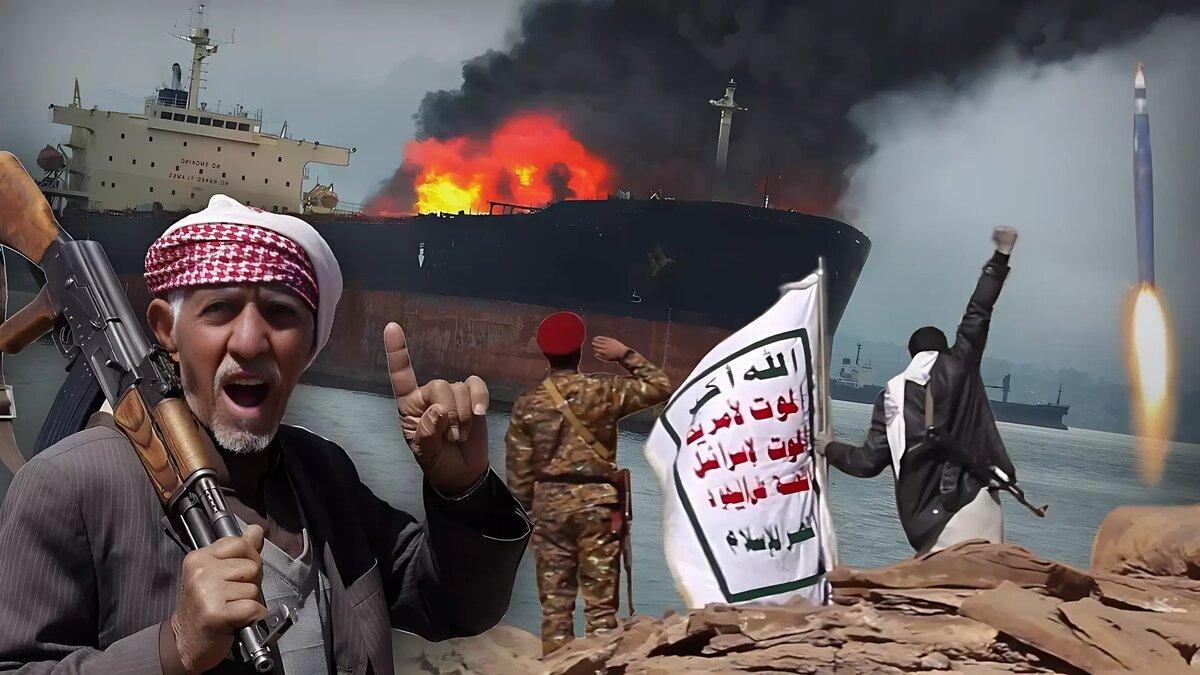Global trade at risk as Washington faces policy failure US-Houthi stalemate continues
Although the US has used expensive warplanes against Yemen's Houthi rebel movement, it has been unable to stop the shelling of merchant ships. In addition, the Houthis have been targeting US military vessels with missiles and drones as well. The Bloomberg publication calls what is happening "a failure of US policy."
In fact, as experts have already noted many times, it would be impossible for the Houthis themselves to produce and use such sophisticated technical devices as cruise missiles and drones to bombard ships in the Red Sea. All of this equipment, based on the application of modern military technology, is manufactured in Iran and delivered to Yemen, apparently through the port of Hodeidah.
Moreover, launching such missiles at moving targets at a distance of tens or hundreds of kilometres is a task that cannot be accomplished by tribal militias, such as the Houthis, on their own. It requires radar guidance and programming skills, etc. Even if Tehran has been able to train some number of Houthi operators, Iranian specialists are still needed for most of the tasks involved in strikes.
Strange as it may seem, it is the presence of Iranians in Yemen that keeps the United States from massively bombing the positions of the Houthis. Washington, as Gregory Johnsen, one of the leading American experts on this problem, notes, is afraid of inflicting major losses on Iran and causing a war with it. Therefore, the US limits itself to strikes on missile systems prepared for launch. But they are difficult to detect, hence the failure of the US mission to protect shipping.
Perhaps the US is avoiding the blockade of Hodeidah for the same reasons - for fear of inflicting losses on the Iranians. Although, another factor may be at work: international humanitarian aid comes to Yemen through this port, without which millions of people in the country will be on the verge of starvation. The US does not want to take responsibility for the mass death of the Yemeni population. As for Iran, entering into a full-scale war with it on the eve of the elections to be held in the US in November is undesirable for the Biden administration.
At the same time, the option of landing the US military in Yemen is not even discussed - the Houthis have experienced guerrilla formations numbering 30,000 fighters with a mobilization reserve of 120,000 and have demonstrated excellent combat qualities in the fight against Saudi troops, who tried to force them out of the occupied areas.

Despite bombings and ground operations by the Saudi army and its allies since 2015, the Houthis still occupy Yemen's most densely populated regions, including the capital, Sanaa. Their mountainous terrain and guerrilla warfare skills, as well as a steady flow of weapons from Iran, have made them a safe haven for Iranian rocket and drone fighters, who have effectively blocked the Red Sea to trade.
Bloomberg summarizes the disappointing results of the US failure, citing specific figures. As a result of the shelling, the world's largest shipping companies are avoiding the Red Sea trade route and the use of the Suez Canal, the main sea trade route linking Europe to the Indo-Pacific region. Before the shelling, this route accounted for 15 per cent of world trade. The attacks have become a real threat to the world economy, although the first ship was not sunk by the Houthis until early March.
The number of ships sailing in the Red Sea has fallen by about 70 per cent since early December. Gas tankers have all but ceased transit in the region, while container traffic has dropped by 90 per cent. With merchant ships now travelling around Africa, via the Cape of Good Hope, this has added two weeks to sailing time and increased its cost. According to Drewry Shipping, the cost of shipping a container from Shanghai to Rotterdam is now double what it was a year ago. The CEO of major transportation company Hapag-Lloyd AG said: "It is either safe for our people or it is not. As long as it is not safe, we will not send our people through the Red Sea."
“The Houthis have proven to be an important and effective regional player,” Maysaa Shuja al-Deen, a senior researcher at the Sanaa Center for Strategic Studies, told the publication. However, it seems that this problem is much larger.
Iran and its allies are blocking one of the planet's main trade routes in what they say is retaliation for Israeli attacks on Gaza.
In fact, the Iranians are ousting the United States from the Middle East. If Washington is no longer able to ensure the security of the Red Sea and the Suez Canal, it means that global companies will sooner or later have to negotiate this with Iran and the Houthis.







